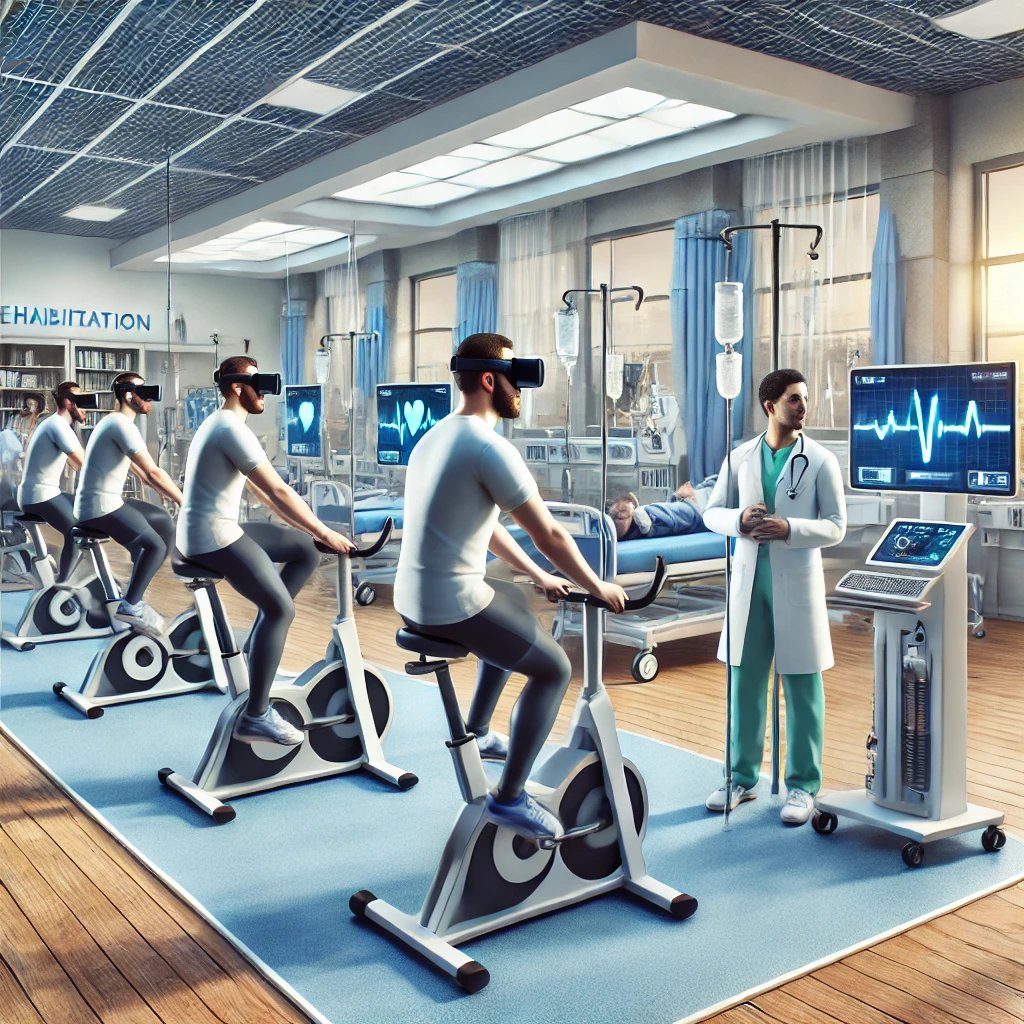Innovation
The use of VR in pulmonary rehabilitation to provide engaging scenarios that help shift patients' focus away from discomfort and increase their motivation to complete the exercises.
Evaluation System
Quantifiable results: The study measured improvements in 6-minute walk test (6MWT) distance, lung function (FEV1, FVC, TLC), and stress levels (Perceived Stress Scale, PSS-10).
Presence of comparison group: Yes, a control group participating in traditional rehabilitation without VR was included for comparison.
Assessment
The practice is considered good as it demonstrated that VR rehabilitation can improve exercise performance and reduce stress levels in post-COVID-19 patients, with results comparable to traditional methods
References
Rutkowski S, Bogacz K, Rutkowska A, Szczegielniak J, Casaburi R. Inpatient post-COVID-19 rehabilitation program featuring virtual reality-Preliminary results of randomized controlled trial. Front Public Health. 2023;11:1121554. Published 2023 Feb 6. doi:10.3389/fpubh.2023.1121554








